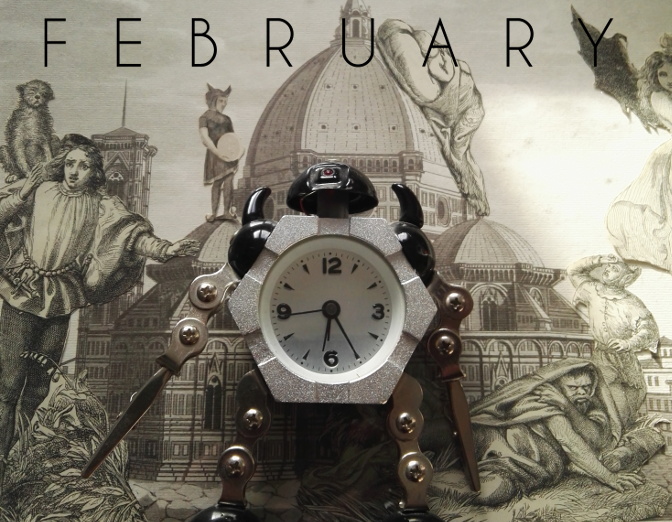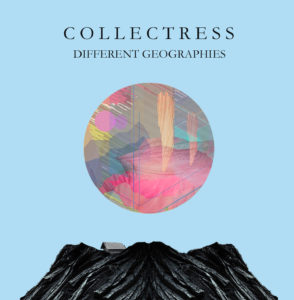The correct response to the title here is of course it depends who you are and what you did. But anyway; in a February when the big news story was the alarming spread of coronavirus/COVID-19, which history will tell us is either – (a) a pandemic like none seen since the 1918 flu outbreak which killed between 20 and 50 million people (quite a big ‘between’. that) or (b) an unfortunate but quite normal kind of illness which is causing inconvenience and a certain amount of tragedy but is mainly a media frenzy like SARS or Bird Flu, and will blow over soon – it seems a bit like fiddling while Rome burns to talk about music and books etc. But as everyone knows, Nero didn’t really fiddle while Rome burned, and anyway, the big and relatively thoughtful thing I was writing during the Christmas holidays is no further forward and I mainly spent February writing things for other places than my own website, so there it is.
 I just finished reading the newest edition* of Jon Savage’s brilliant England’s Dreaming which is as good as any music-related book I’ve ever read and made me realise how many parallels there are between now and the political situation in mid-70s Britain. Up to a point, that is. It would be hard, even I think for a conservative person, to see the victory of Johnson’s Tories as a return to some kind of sensible order in the way that deluded right wingers saw Thatcher’s victory – which did, it has to be said, render somewhat pointless the extreme right wing groups like the National Front & British Movement that had been growing in strength and influence throughout the decade. As with Johnson/the ERG and their wooing of the UKIP/nazi fanbase though, the reassurance that comes from seeing extremist groups losing popularity is soured (to put it mildly) by having people in charge who appeal to that demographic.
I just finished reading the newest edition* of Jon Savage’s brilliant England’s Dreaming which is as good as any music-related book I’ve ever read and made me realise how many parallels there are between now and the political situation in mid-70s Britain. Up to a point, that is. It would be hard, even I think for a conservative person, to see the victory of Johnson’s Tories as a return to some kind of sensible order in the way that deluded right wingers saw Thatcher’s victory – which did, it has to be said, render somewhat pointless the extreme right wing groups like the National Front & British Movement that had been growing in strength and influence throughout the decade. As with Johnson/the ERG and their wooing of the UKIP/nazi fanbase though, the reassurance that comes from seeing extremist groups losing popularity is soured (to put it mildly) by having people in charge who appeal to that demographic.
*the latest revised edition is from 2005, and is the one to get – the excellent introduction, which addresses the ‘Englishness’ of punk within the wider UK setting, is itself quite dated, though more relevant than ever, and this version also contains a brief summary of that most surprising part of the whole Sex Pistols story – the band’s 1996 reunion.
Reading about punk – especially remembering the very tail end of it in the early 80s (i.e. seeing the stereotypical 80s fashion punks and skinheads and reading THE EXPLOITED/OI!/PUNKS NOT DEAD etc spray painted all over the place) it’s hard to imagine the force the movement had in ’76-7. In my own era, Acid House/rave culture/etc has had an even bigger impact on music and arguably a comparable one culturally, but although it annoyed grownups and upset politicians it was never as deliberately confrontational or as alien and ugly as punk. Its figureheads, insofar as it had any, could certainly be ‘outrageous’ in a way, but Shaun Ryder and Bez swearing on TV was worlds away from the omnipresence of the Sex Pistols in the UK media of the 70s; not least because the Sex Pistols and punk had already happened. Pop stars being obnoxious in the 90s was not a phenomenon – and the Pistols, despite everything, were a recognisable thing – a pop group or rock band.
The public and the tabloids knew about the existence of acid house, and might be alarmed by the ‘acid’ aspect in particular – but as far as signing record contracts, being on TV or playing concerts went, there wasn’t much to report on. An interesting thing about the acid house/rave phenomenon was that, although a musical movement, the music and its makers barely featured in the moral panics that ensued, it was all about the audience. Whether this made it more frightening to the older generation, I don’t know. In the 60s, the Woodstock kids might have been seen as outrageous dirty, drug taking hippies, but maybe the fact that they were being ‘incited’ by Jimi Hendrix, The Who, Country Joe etc in a field (much like the teenagers in the 50s were under the influence of Bill Haley/Elvis etc and punk kids in the streets were being led astray by Rotten & co on TV) gave a clear them/us or leader/followers divide and made it easier to condemn/contain/control them? This is an interesting thing that I should think about more – except that I’m almost certain that there will be a book out there by someone who has thought about it more and knows a lot more than I do about the 90s (the most I can say is ‘I was there’, I wasn’t mostly very interested in acid house etc at the time).
Anyway; certainly the punks were heirs to the hippies (not that they would have welcomed the comparison) in that the visibility of the punk audience (who, whatever their claims of individuality, were clearly – especially by 1977 – dressing in emulation of other punks, of whom Johnny Rotten was the most visible example) marked them out as ‘other’. And made them a target of the authorities, as well as a flag for disaffected kids to rally to. The subtitle of England’s Dreaming – “The Sex Pistols and Punk Rock” is important. The Sex Pistols may not have the strongest claim to have invented punk, but in a sense that isn’t as true for other foundational bands, they were punk; their career trajectory; form band, play shows, cause outrage, record demos, cause outrage, sign contracts, appear on TV, cause outrage, get dumped by label, cause outrage get banned from venues, release singles, cause outrage, release album, cause outrage, split up, have a member die – within the space of around two years, is a microcosm of UK punk. The British punk scene was born with them and it essentially died with Sid Vicious; everything thereafter is either post-punk, second-wave punk or pastiche. Whether embodying a movement is an achievement as such is hard to say and in a way doesn’t matter, but what Savage documents is the way in which a youth movement – one with many and varied influences and antecedents – absorbed and expressed the anxieties of its time and in turn embodied and shaped them.
Away from that book, I’ll keep up with my pick of the most interesting things to be sent my way in February.
Out in April is a reissue of a noise-rock classic from 1995:
Caspar Brötzmann Massaker
Home
Southern Lord Recordings
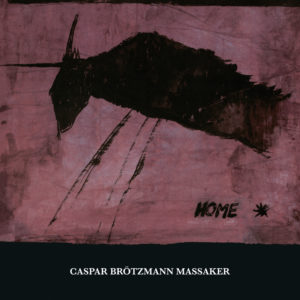 Sounding something like The Birthday Party playing noisy free jazz, the Massaker are a brutal guitar-bass-drums (with minimalist vocals) trio; heavy on feedback, tense dynamics and churning distortion, but sometimes almost groovy and (very) occasionally kind of pretty. Home was their fifth album and it’s pretty similar to the only other one of their albums that I know, The Tribe, from 1987. Squally, angular and dark but with insistent percussion, it’s a great palate-cleanser for your ears after too much pop music.
Sounding something like The Birthday Party playing noisy free jazz, the Massaker are a brutal guitar-bass-drums (with minimalist vocals) trio; heavy on feedback, tense dynamics and churning distortion, but sometimes almost groovy and (very) occasionally kind of pretty. Home was their fifth album and it’s pretty similar to the only other one of their albums that I know, The Tribe, from 1987. Squally, angular and dark but with insistent percussion, it’s a great palate-cleanser for your ears after too much pop music.
I could say the same about this, very different but equally eccentric record:
JZ Replacement
Disrespectful
Rainy Days Records
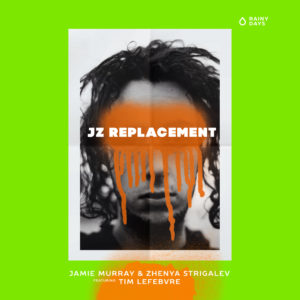
Zhenya Strigalev (saxophone), Jamie Murray (drums) and Tim Lefebvre (bass) have made a frankly insane-sounding but weirdly addictive record that at different times reminds me of the John Zorn/Bil Laswell/Mick Harris jazz/grind band Painkiller, Ornette Coleman and King Tubby. But it also has the odd moment of funk, breakbeat and drum-n-bass. Nevertheless it’s amazingly coherent and although at times I thought Murray, Strigalev or Lefebvre was what made it so great, subtracting any one element would make it all collapse. Recording something at once as familiar and peculiar as any song here (‘Guilty Look 3‘ is a great example) is a special skill. Disrespectful borrows from everywhere and yet somehow sounds like nothing else – and really that’s just what jazz is all about.
Perchta
Ufång
Prophecy Productions
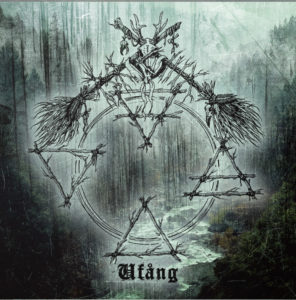 This Austrian black metal project has a very specific local (Tyrolean) focus, but judging by its Facebook page is the brainchild of Italian ex-pat Fabio D’Amore of symphonic power metal band Serenity; which makes sense – for all its atmospheric/folkish elements (there are some very nice jangly clean parts), this is a theatrical, musicianly album which feels epic and polished rather than dark and brutal. The band’s name refers to a pagan goddess, and throughout the album an odd, witchy narrator pops up declaiming or whispering, who I assume is the woman in the artwork, who the promotional material refers to as “the front woman [who] will sermonize, face-painted in historical black garb with embroidered belt and cast-iron broom …”
This Austrian black metal project has a very specific local (Tyrolean) focus, but judging by its Facebook page is the brainchild of Italian ex-pat Fabio D’Amore of symphonic power metal band Serenity; which makes sense – for all its atmospheric/folkish elements (there are some very nice jangly clean parts), this is a theatrical, musicianly album which feels epic and polished rather than dark and brutal. The band’s name refers to a pagan goddess, and throughout the album an odd, witchy narrator pops up declaiming or whispering, who I assume is the woman in the artwork, who the promotional material refers to as “the front woman [who] will sermonize, face-painted in historical black garb with embroidered belt and cast-iron broom …”

Not really my cup of tea overall, which is a shame because I really like the idea of the Tyrolean folklore etc, but it’s extremely well done and has some very good tunes and with the usual excellent Prophecy treatment it will no doubt find its audience.

